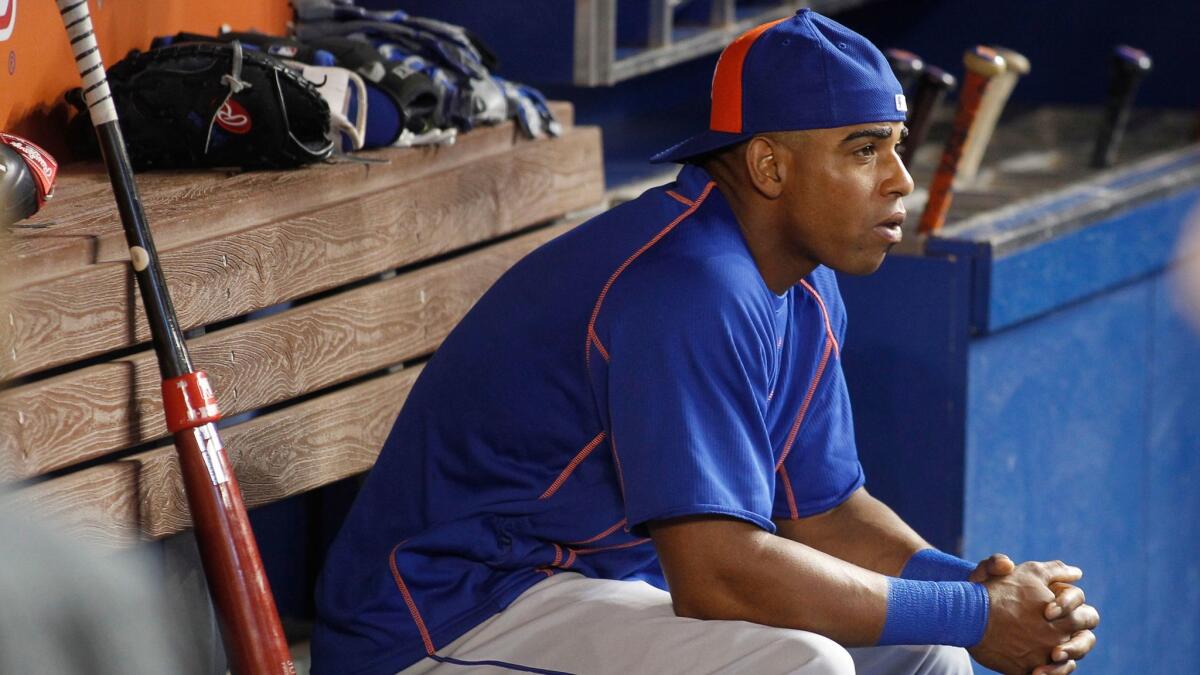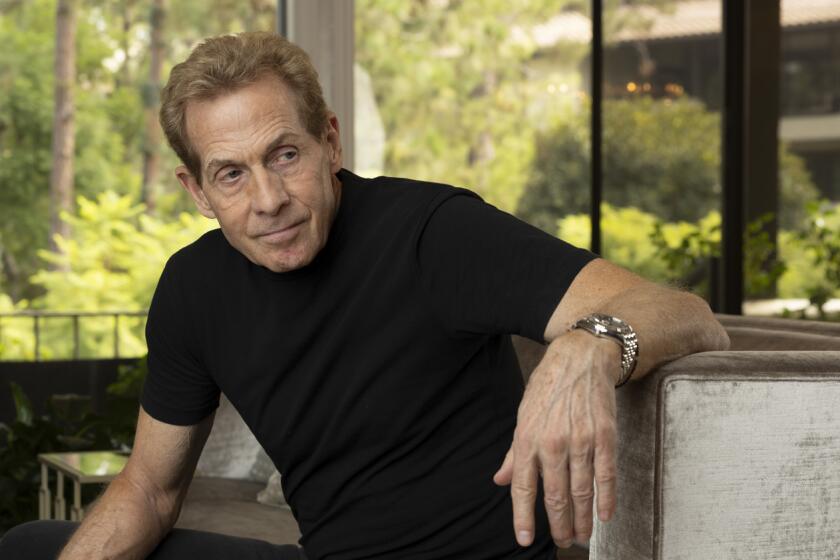Why MLB labor talks are down to their last day

Baseball has enjoyed labor peace for 21 years, largely because the owners abandoned their pursuit of a salary cap. If a sport awash in money shuts down Wednesday night, it might well be because the players believe the owners want to get dangerously close to the equivalent of a salary cap.
Baseball’s collective bargaining agreement expires at 9 p.m. PST. If there is no deal by then, owners reportedly have threatened to lock out players, which would not immediately put the 2017 season in jeopardy but would put a freeze on player signings. If a deal is close, owners and players could agree to extend negotiations beyond Wednesday.
The major sticking point reportedly involves the luxury tax. Major League Baseball is the only one of the four major North American sports leagues without a salary cap.
With the Major League Baseball Players Assn. insistent that teams should be free to pay a player as much money as the market will bear, the luxury cap allows teams to spend an unlimited amount on payroll but assesses a tax on spending over a certain amount.
That amount — $189 million — has not changed since 2014. At the same time, baseball’s revenues have grown to $10 billion per year.
The most recent evidence of wealth: The New York Mets on Wednesday announced the signing of outfielder Yoenis Cespedes to a four-year contract for $110 million — that is, an average annual value of $27.5 million, a league record for an outfielder. Cespedes has played five years in the majors and has never finished above eighth in an MVP vote.
However, in the first four years of the current collective bargaining agreement (2012-15), only two teams paid the luxury tax more than once: the Dodgers and the New York Yankees, and both those teams have indicated a desire to reduce payroll to a level where they would not have to pay the tax.
Is that a de facto salary cap? At least some players must wonder, particularly given that powerful agent Scott Boras said last winter that the players’ share of industry revenue had slipped to 43%.
Tony Clark, executive director of the players union, quickly shot back.
“Despite what you may have read or heard at any given time, the quote-unquote ‘player share’ is as close to 50-50 as it has been in a long time,” Clark said.
It might seem natural that the luxury-tax threshold should rise along with revenues, but Angels owner Arte Moreno said last winter that some owners viewed the threshold as too high and the taxes as not stiff enough to deter spending.
This is Clark’s first labor negotiation. If the MLBPA accepts ownership proposals that the luxury tax threshold remain at $189 million for the 2017 season (via USA Today) or that teams forfeit draft picks for exceeding the threshold (via Fox Sports), agents and their player clients might not be satisfied with Clark’s leadership.
There is a long day left for negotiations, and there is a deal to be made. But even a $10-billion pie is not easy to split.
Twitter: @BillShaikin
More to Read
Go beyond the scoreboard
Get the latest on L.A.'s teams in the daily Sports Report newsletter.
You may occasionally receive promotional content from the Los Angeles Times.











